Afropunk is, perhaps, the one "safe space" where black people can gather annually en masse to express their gloriously diverse, true punk selves
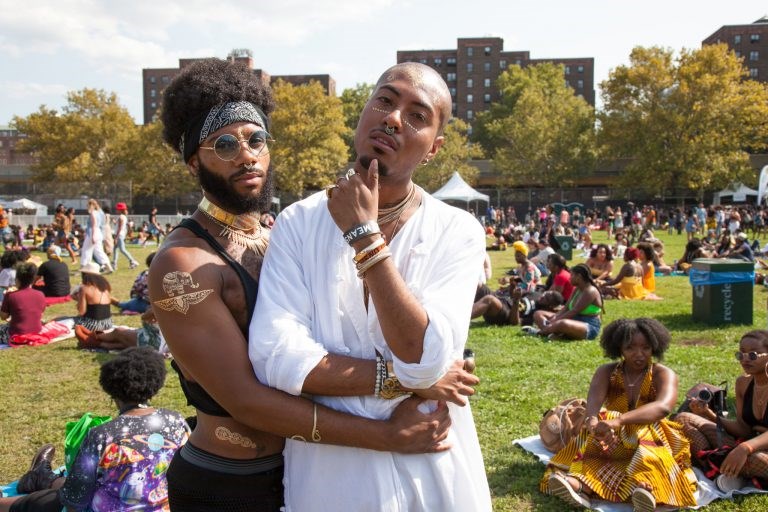
Afropunk has never been your typical music festival. Here, you won't find attendees donning t-shirts with peace signs and fluffy platitudes like "Let Love Rule" or hear anyone waxing on about "give our new president a chance." What you'll walk past instead is a fence strewn with lights that spell out the word "R-E-S-I-S-T."
There are no loud demonstrations, no rallies. In fact, the participants are quite relaxed: It is, perhaps, the one "safe space" where they can gather annually en masse to express their true punk selves.
Still, the protest air is thick at Afropunk. You'll find giant murals of black women in power poses and trees wrapped in signs outlining the many ways Trump and Pence are running a fascist regime.
Oh, and you're likely to bump into a legendary activist or two, such as Angela Davis or DeRay McKesson or Yasiin Bey (aka Mos Def), all of whom were among this year's 70,000 festival attendees.
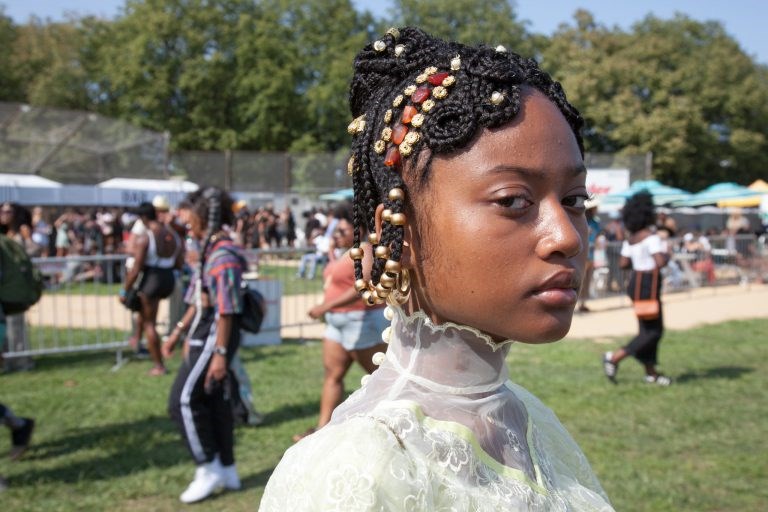
Just as blackness has always been politicized, so too has Afropunk, beginning with its launch in 2005. In fact, Afropunk came out the womb "anti-establishment" simply by virtue of its niche community: black punk musicians and the fans that love them (because they dared to be different, bold and expressive in a social climate where lumping racial groups into one box was more about political convenience than truth).
This year's theme, "We the People--Believe In Yourself," lifts from the Constitution to harness Afropunk's power as a united force comprised of uniquely powerful individuals and agents of change.
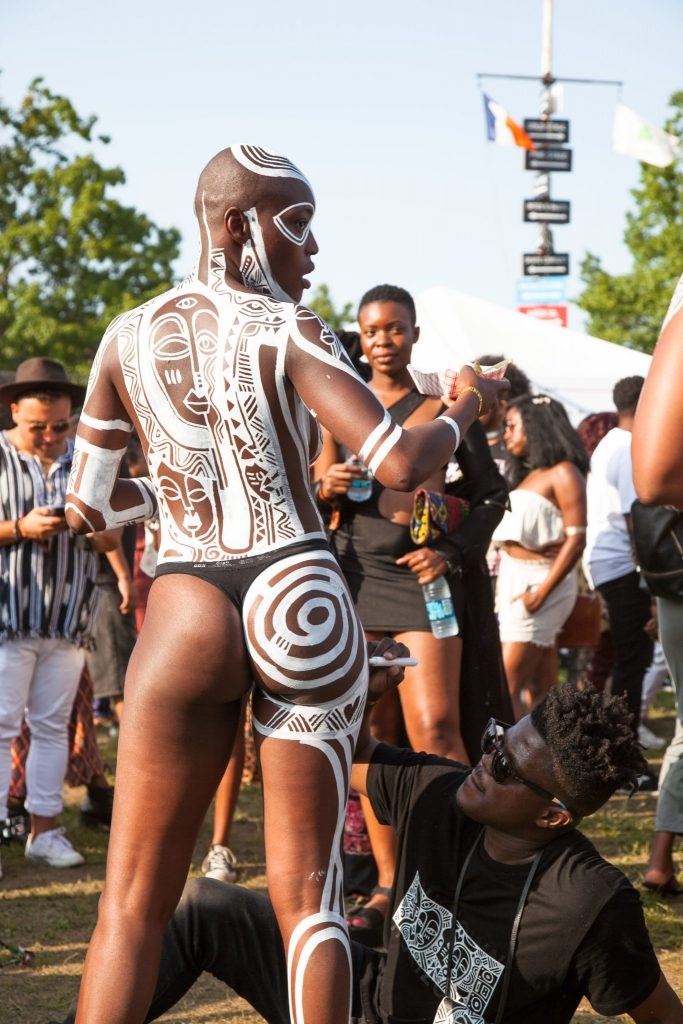
The festival's "Activism Row," which includes a line of booths of nonprofit community organizations, is situated in a prime location near the Solange-curated Green/St. Heron stage, for maximum foot traffic.
Beyond the expected voter registration booths, there were groups mobilizing positive, progressive young people around both local and national issues, including gentrification, saving Obamacare, reproductive justice, and mass incarceration.
Organizers also brought back a program called "Afropunk Army," which provides free festival entry in exchange for volunteering with local partners doing outreach campaigns for public housing, for instance.
While the unofficial "Afropunk Fashion Show" (staged by basically everyone who attended) has been known for its head-turning vibrant colors and African patterns, styled with an ingenious DIY aesthetic, statement tees that were bold and clever-- from "Punny Pride" to "Black by Popular Demand" to "White Girls Copying Gay Men Copying Black Girls"--were photographed equally as often.
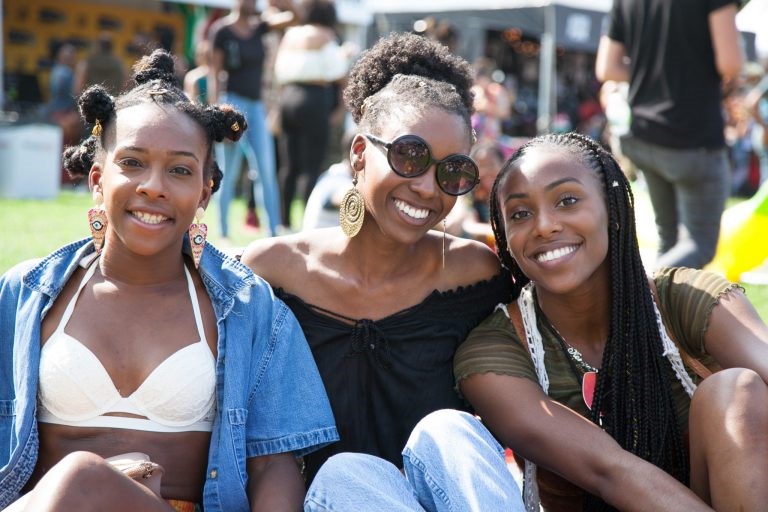
At Afropunk, a simple "Black Lives Matter" shirt wouldn't get the message across in quite the same way as a handmade costume dress in Pan-African colors and a crown made of glittery cardboard letters that read "EVERYTHING Black Matters," complete with a black fist clutching a wad of cash across the chest (the message being "support black business," which also was displayed on all screens next to the stages).
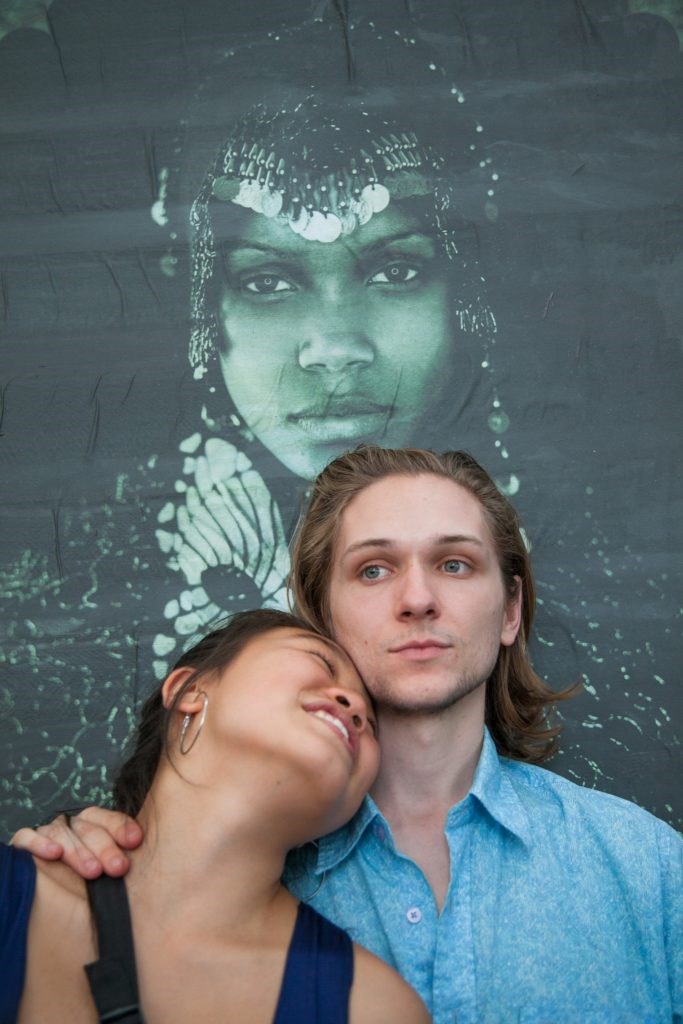
But the organizers' most obvious effort to tap into their community's consciousness exists in the lineup of artists unafraid of speaking truth to power: from Princess Nokia, who boldly raps about colonization of her indigenous land and culture; to Sinkane, who sings about how the political climate forced him to reckon with his fraught identities of being black, Muslim and the son of Sudanese immigrants.
But it was the performance of headliner Solange, whose album "Seat At The Table" dropped weeks before last year's presidential election, that delivered perfectly on the pride and pain of being black in America. She eased the audience in with "Weary," a song that everyone could sing along and relate to, questioning the senseless hate in the world. However, after interspersing her set with lighter moments, like a throwback to her early career singing "The Proud Family" theme song, she closed out with "F.U.B.U (For Us, By Us)" and "Don't Touch My Hair."
While Afropunk is open and welcoming to any and everyone, Solange's acknowledgement that black people specifically have a right to self-determination was met with wild applause and cheers throughout the park, from fans of all races.
Performances like Solange's encompassed everything Afropunk represented in 2017: a celebration of unapologetic blackness and resistance, simply by existence.



